Description

RESS

SpaceIQ
Comprehensive Overview: RESS vs SpaceIQ
RESS (Real Estate Software Solutions) and SpaceIQ are two prominent players in the field of workplace and facility management software. Below is a comprehensive overview of each, focusing on their primary functions, target markets, market share, user base, and key differentiating factors.
a) Primary Functions and Target Markets
RESS (Real Estate Software Solutions):
- Primary Functions: RESS provides integrated software solutions aimed at managing real estate portfolios, lease administration, financial management, and space planning. The software often includes features for property management, asset management, space optimization, and tenant relationship management.
- Target Markets: The primary target markets for RESS include large enterprises, commercial real estate owners, corporate real estate managers, and financial institutions that handle extensive property portfolios.
SpaceIQ:
- Primary Functions: SpaceIQ offers workplace management solutions focused on space planning, desk booking, facility management, and employee experience enhancement. Its tools help organizations optimize their workspace utilization, improve employee collaboration, and manage facilities efficiently.
- Target Markets: SpaceIQ primarily targets medium to large enterprises, workplace managers, facility managers, and corporate real estate teams across various industries like technology, healthcare, education, and financial services.
b) Market Share and User Base
-
RESS: Typically, RESS products hold a significant portion of the market share in the commercial real estate sector due to their comprehensive solutions tailored for large-scale property management and financial analysis. Its user base consists mainly of large enterprises with extensive property portfolios.
-
SpaceIQ: SpaceIQ has a strong presence in the workplace management and space optimization market. Its user base includes a wide variety of organizations looking to enhance their employee experience and optimize office space utilization. The company has seen growth due to the increasing demand for flexible workspace solutions, especially with the rise in hybrid work models.
c) Key Differentiating Factors
-
Functionality: While both RESS and SpaceIQ deal with real estate and facilities management, RESS is more focused on financial and lease management aspects of real estate portfolios. In contrast, SpaceIQ emphasizes space optimization, facility management, and enhancing employee experience.
-
Industry Focus: RESS is geared more towards the commercial real estate industry, providing tools for extensive real estate portfolio management. Meanwhile, SpaceIQ serves a broader range of industries, focusing on internal workplace management for organizational efficacy and employee satisfaction.
-
Technology and Usability: SpaceIQ is noted for its modern user interface and ease of use, making it accessible for a variety of user roles, whereas RESS tools might require more specialized knowledge, particularly in financial and asset management.
-
Scalability: While both platforms are scalable, SpaceIQ's solutions are designed to adapt to the dynamic needs of modern workplaces, supporting both large enterprises and growing businesses that require flexible space management solutions.
As the workspace technology landscape continues to evolve, both RESS and SpaceIQ are likely to innovate and expand their offerings to meet changing market needs, shaping their future roles in real estate and facility management.
Contact Info

Year founded :
2003
Not Available
Not Available
United States
Not Available

Year founded :
Not Available
Not Available
Not Available
Australia
http://www.linkedin.com/company/space-iq
Feature Similarity Breakdown: RESS, SpaceIQ
To provide a feature similarity breakdown for RESS and SpaceIQ, let's analyze their core functionalities and differentiating aspects:
a) Core Features in Common
-
Space Management: Both RESS and SpaceIQ offer robust space management capabilities. They allow organizations to efficiently allocate and monitor the usage of office spaces.
-
Room Booking Systems: Each platform includes a room booking system that lets users reserve meeting rooms, desks, and other shared spaces.
-
Resource Scheduling: Both software solutions provide tools for scheduling resources such as equipment, catering, and other services needed for meetings and events.
-
Real-time Data and Analytics: They offer analytics features that provide insights into space utilization, occupancy rates, and other key metrics to optimize space planning.
-
Integration with Other Tools: Both platforms can integrate with various third-party applications, including calendars (like Outlook and Google Calendar) and communication tools (such as Slack).
-
Mobile Access: They both offer mobile-friendly interfaces, allowing users to interact with the system on-the-go via smartphones or tablets.
b) User Interface Comparison
-
RESS: Typically designed with a strong emphasis on simplicity and efficiency, RESS interfaces tend to be intuitive and user-friendly, catering to users who need quick access to information. The UI focuses on minimal clicks to accomplish tasks and provides a clean design for easy navigation.
-
SpaceIQ: Known for its modern and slightly more sophisticated interface, SpaceIQ often provides a richer visual representation of office spaces, including floor plans and spatial analytics. It may offer more customization options for the user interface, appealing to organizations seeking detailed visual management of their environments.
c) Unique Features
-
RESS:
- Automated Reporting: RESS might offer more advanced or specific automated reporting features that cater to particular industries or business requirements.
- Custom Workflows: This platform may provide customizable workflows, enabling users to tailor processes to suit their unique operational needs.
-
SpaceIQ:
- Advanced AI Tools: SpaceIQ often incorporates AI-driven analytics for predictive insights, helping organizations proactively adapt to changing workspace needs.
- Enhanced Visualization: The platform might offer enhanced visualization tools for space planning, including 3D modeling or AR/VR capabilities.
Each platform has strengths that cater to different types of users or organizational needs, depending on specific requirements for space management and user interface preferences.
Features

Comprehensive Analytics
User-Friendly Interface
Efficient Collaboration Tools
Robust Security Features

Facility Management
Workspace Management
Employee Experience
Resource Management
Best Fit Use Cases: RESS, SpaceIQ
RESS and SpaceIQ are both workplace and facility management solutions, but they cater to different needs and types of organizations. Let's explore the best fit use cases for each:
RESS
RESS, or Room and Event Scheduling Software, is typically designed to handle complex scheduling needs, often within educational institutions, government facilities, or large corporations. Here's how and where RESS stands out:
a) Best Fit for Businesses or Projects:
-
Educational Institutions: RESS is ideal for universities or colleges managing numerous classrooms, labs, and event spaces. The software helps optimize space utilization and coordinate events effortlessly.
-
Large Corporations: Corporations with significant meeting and conference room demands can benefit from RESS to enhance space management, reduce conflicts in scheduling, and streamline event coordination.
-
Government and Public Sector: Organizations operating government buildings where multiple departments share spaces can leverage RESS for efficient scheduling and allocation of resources.
SpaceIQ
SpaceIQ focuses more on integrated workplace management systems (IWMS) and can handle broader aspects of facility management, including space planning, occupancy tracking, and asset management.
b) Preferred Scenarios for SpaceIQ:
-
Corporate Real Estate Management: Companies looking to streamline their real estate assets and optimize workspace layouts—especially under hybrid or flexible work models—can benefit from SpaceIQ's robust features.
-
Dynamic Work Environments: Organizations with constantly changing workplace setups and remote work policies will find SpaceIQ helpful in managing these transitions smoothly.
-
Facilities with a Need for Maintenance Management: SpaceIQ provides tools to track maintenance schedules, manage work orders, and ensure that facilities remain operational and safe.
Catering to Different Industry Verticals or Company Sizes:
d) Industry Verticals and Company Sizes:
-
Small to Medium Enterprises (SMEs): SpaceIQ offers scalable solutions that can start small and grow, making it suitable for SMEs managing smaller workspaces but looking for growth.
-
Large Enterprises and Multinational Corporations: Both RESS and SpaceIQ can handle the complexities of large enterprises. RESS is often chosen for its scheduling efficacy, while SpaceIQ's broader IWMS capabilities appeal to organizations seeking comprehensive real estate and workspace management.
-
Healthcare and Hospitals: Both solutions can apply here in different ways, with RESS helping in scheduling hospital resources or training rooms, and SpaceIQ aiding in space optimization and maintenance within healthcare facilities.
-
Technology & Start-ups: Start-ups and tech companies, frequently rapid-growth entities with dynamic work cultures, may prefer SpaceIQ for its agility in managing space and accommodating changing team needs.
Ultimately, the choice between RESS and SpaceIQ depends on the specific needs relating to space and event management (RESS) versus comprehensive workplace and facility management (SpaceIQ). Each product caters to different facets of workspace management, suited to the nature and scale of the organization.
Pricing

Pricing Not Available

Pricing Not Available
Metrics History
Metrics History
Comparing teamSize across companies
Conclusion & Final Verdict: RESS vs SpaceIQ
To provide a comprehensive conclusion and final verdict on RESS and SpaceIQ, let's analyze both products based on various factors such as functionality, ease of use, cost, and customer support.
Conclusion and Final Verdict
a) Best Overall Value
When determining the best overall value between RESS and SpaceIQ, it is essential to consider the balance of features, cost, and user experience. SpaceIQ generally offers a more holistic approach with advanced features for space management, which may be particularly beneficial for large enterprises needing comprehensive solutions. However, RESS can be a more cost-effective choice for smaller organizations or those with specific needs that it addresses well.
Based on value, SpaceIQ slightly edges out RESS due to its breadth of features and scalability potential, which provides better long-term value for growing organizations despite potentially higher initial costs.
b) Pros and Cons of Each Product
RESS:
-
Pros:
- Cost-effective, suitable for smaller organizations.
- User-friendly interface with a focused set of features.
- Easier implementation process with less complexity.
- Good customer support with a responsive team.
-
Cons:
- Limited scalability for rapidly growing enterprises.
- Might lack advanced functionality needed for comprehensive space management.
- Customization options may be limited compared to more robust platforms.
SpaceIQ:
-
Pros:
- Comprehensive suite of features that support complex space management needs.
- Scalable solution that can grow with the business.
- Strong data analytics and reporting capabilities.
- High customization potential to meet specific business needs.
-
Cons:
- Higher cost, which may be prohibitive for smaller organizations.
- More complex implementation and longer learning curve.
- Potential overkill if the organization has basic space management needs.
c) Recommendations for Users
-
For Small to Medium-sized Businesses: If you are a smaller organization or have limited technical needs, RESS could be a more appropriate choice due to its cost-effectiveness and ease of use. Evaluate your current space management needs and projected growth to ensure that RESS can accommodate future demands.
-
For Large Enterprises or Growing Companies: If your organization has complex space management needs, or if you anticipate significant growth, SpaceIQ is the better option due to its scalability and comprehensive functionality. Be prepared for a more involved implementation process and ensure you have the resources to maximize the use of its features.
-
Specific Considerations: Users should consider the integration capabilities with other systems they currently use. Also, assess user feedback within your industry to see how similar organizations have benefited from each platform. Trial periods or demos could be useful in evaluating which product better aligns with your current workflows.
In conclusion, your decision should be guided by the specific needs of your organization, your budget considerations, and how each platform aligns with your strategic business goals.
Add to compare
Add similar companies




